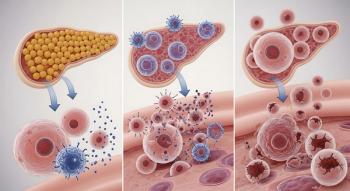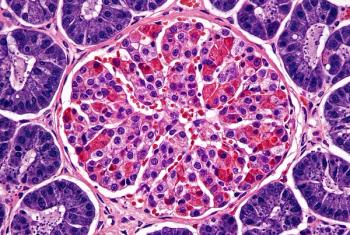
ATG Is Used to Prevent Organ Rejection. Researchers Say it Can Also Protect Insulin-Producing Beta Cells
Investigators have identified the lowest dose of the immunosuppressive ATG needed to preserve beta cells in newly diagnosed children with Type 1 diabetes with the lowest side effects.
A low dose of anti-thymocyte globulin A (ATG), an immunosuppressive, was able to preserve beta cells in patients with newly diagnosed Type 1 diabetes, according to new data released recently at the 2025 European Association for the Study of Diabetes (EASD) Meeting and
Type 1 diabetes is a disease where the immune system destroys insulin-producing beta cells in pancreatic islets. Type 1 diabetes is a chronic disease where patients rely on insulin and careful monitoring of blood glucose levels. It affects approximately 9.5 million people worldwide and about 2 million in the United States.
ATG is an immunosuppressant that works by blocking the immune cells that destroy beta cells. High-dose ATG is used after organ transplants to prevent rejection.
Previous research has demonstrated that low-dose ATG is a promising therapeutic for modifying the progression of Type 1 diabetes and is able to preserve beta cell function. In a
The phase 2
Researchers found that the lowest dose of ATG, 0.5 mg/kg, had fewer side effects compared with the higher doses, and it was generally well-tolerated. Participants who received a lower dose of ATG demonstrated clinically significant higher C-peptide levels (which indicates the body is making more insulin) during the treatment period compared with placebo. This was accompanied by lower hemoglobin A1c levels, indicating a lower level of glucose.
The data were presented at EASD by Chantal Mathieu, M.D., Ph.D., a professor of Medicine at Katholieke Universiteit Leuven in Belgium.
The study was completed through a collaboration between the global partnership of academic researchers INNODIA, Breakthrough T1D, the Helmsley Charitable Trust, and the European Commission’s Innovative Medicines/Health Initiative, as well as Sanofi.
“The horizon is bright for ATG; investigators have now identified the lowest dose needed to preserve beta cells in newly diagnosed children and young adults with T1D, with the fewest side effects possible,” officials from Breakthrough T1D said.
The organization, along with the T1D Fund, is supporting the development of a next-generation ATG with a manageable/lower side effect profile compared with the medication used in the current trial.
Newsletter
Get the latest industry news, event updates, and more from Managed healthcare Executive.























